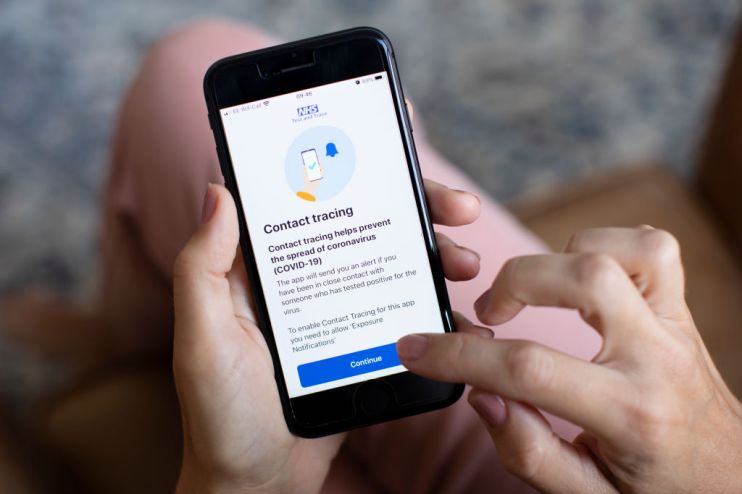Pingdemic: 1 in 5 NHS Covid app users have turned contact tracing off

1 in 5 NHS Covid app users currently have their Bluetooth or contact tracing turned off on their phones, as more than half a million people were “pinged” into isolation last week.
As the Delta variant rips through the UK and most restrictions lift, a third of Brits using the NHS app have admitted to disabling contact tracing on their phones at some point, according to a YouGov survey of 1761 UK adults between 15 and 16 July.
Others are avoiding being “pinged” through other methods, with a third of users admitting to having avoided checking in to a venue by scanning a QR code.
One in ten online Brits have got so fed up with the app that they’ve deleted it, and a third of UK adults have never downloaded it.
YouGov said “app deserters” were most likely to be in the younger age group, with 17 per cent of 18 to 24-year-olds deleting the app having previously installed it.
It comes as the app’s sensitivity is under review after reports that the app is “pinging wrong” and Brits are being told to self-isolate when their neighbours test positive.
Business leaders across a range of industries have spoken out about staffing chaos as rotas are forced to change with no notice – threatening their prospects of a return to normal business when restrictions lift on Monday.
Exceptions for some businesses
But the Prime Minister’s official spokesperson announced on Tuesday that some UK businesses will be able to apply for exemptions to the government’s self-isolation rules amidst fears the so-called “pingdemic” will cripple the economy.
Vital businesses that maintain the supply of food or medicines, like supermarkets and pharmacies, could be eligible for the exemption.
Johnson’s spokesman said today that exemptions to the self-isolation rule would be on “a business by business need”, but that “there are some limited sectors, like nuclear for example, when it will be for the broader sector”.
The spokesperson did not mention any timeline in which the exemptions will be introduced.
Staffing chaos
Last week, chief executive of UK Hospitality Kate Nicholls told MPs that one in five workers in the hospitality and retail sectors were self-isolating due to being pinged – and warned this could increase.
“We have one in five hospitality staff in isolation, and we have particular concerns as around 60% of our staff are under 30,” Nicholls told the Commons business select committee.
“The changes to allow double-vaccinated people to avoid isolation won’t kick in in a material way until September because the workforce won’t have been able to have their second jabs until then.
“We believe we need to have a test-to-release policy to help them work.
Helen Dickinson, chief executive of the British Retail Consortium, said British shops were experiencing similar levels of staff absences, with vacancy rates of around 20 per cent.
“And only some of that is directly people with COVID – a lot is the indirect consequence of having to isolate, irrespective of tests or whether one has had two vaccines,” she told MPs.
“I think it is an immediate issue that comes with the lifting of restrictions.”